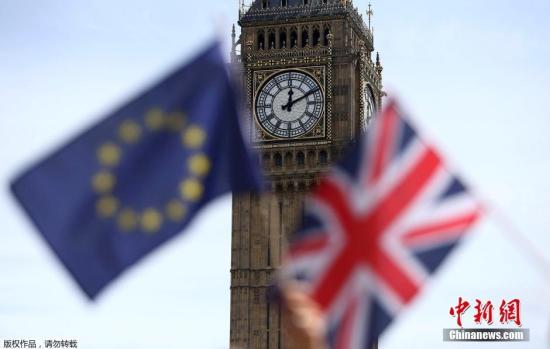China News Service, June 18, Reuters quoted an internal document saying that the German government is urging other EU countries to prepare for the failure to reach an agreement during the Brexit transition period. The document shows that the prospects for negotiations on future relations between Britain and Europe remain uncertain.
According to previous reports, on January 31, 2020, the United Kingdom formally left the European Union, and British-European relations immediately switched to an 11-month transition period, which will be declared to end on December 31, 2020. During this period, Britain and Europe will negotiate future relations.
Data Map: In 2016 local time, the United Kingdom held a referendum on Brexit.
According to reports, the British Prime Minister Johnson confirmed last week that the United Kingdom has no intention of extending the Brexit transition period beyond 2020, and he hopes to reach a free trade agreement as soon as possible. He also said on the 15th that there is no reason not to finalize the outline of the agreement in July, and said that despite the deadlock in the negotiations, he was still optimistic.
However, the German government document dated June 15 seen by Reuters shows that Berlin expects the negotiations to take longer.
"Starting in September, the negotiations will enter a heated stage," the document said, "The United Kingdom has begun to increase threats in Brussels, hoping to solve as many problems as possible in the shortest possible time, and hope that at the last minute of the negotiations Success."
The document shows that the German Ministry of Foreign Affairs is convinced that the "transition period" arrangement will not be extended beyond the end of 2020. "Therefore, it is important to maintain the unity of the 27 countries, continue to insist on advancing in all areas (overall agreements) at the same time, and make it clear that we will not at any cost to reach an agreement.
The document said, "Therefore, it is necessary to start preparing the emergency plans of the countries and the EU as a whole to prepare for the'no agreement Brexit 2.0'."
The report said that the Brexit agreement adopted in January 2020 was reached after intense consultations and threatened by "no agreement to leave the EU", but Berlin believes that this time the situation is not so critical. The document reads, "The situation is not as serious as in 2019, because some important regulations, such as the free movement of citizens, have been resolved in the Brexit agreement."
Given the fact that the differences between the two sides are so great and that there is not much time left for negotiations, some people worry that London’s decision not to extend the “transition period” may lead to a cliff-like Brexit and may worsen the British economy, which has been hit hard by the new crown crisis.

